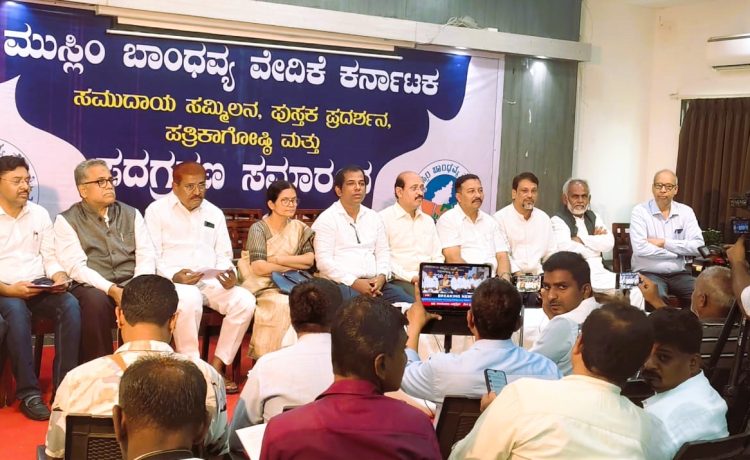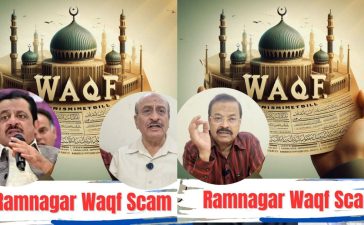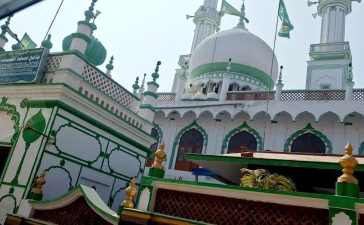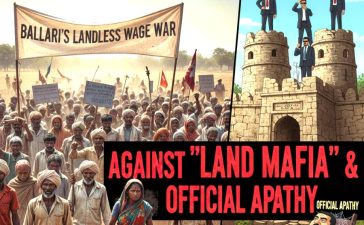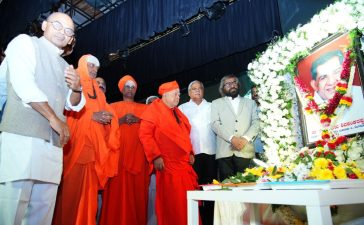Muslim Brotherhood Forum Karnataka Calls for Strengthening Lingayat-Muslim Unity Amid Political Tensions
“ಮುಸ್ಲಿಂ ಬಾಂಧವ್ಯ ವೇದಿಕೆಯ ಆವಹನೆ: ಲಿಂಗಾಯತರೊಂದಿಗೆ ಹಿಂದಿನಂಥ ಸ್ನೇಹ, ಸಹಕಾರವನ್ನು ಪುನರ್ಸ್ಥಾಪಿಸಬೇಕು – ರಾಜಕೀಯ ಒಡಕುಗಳಿಗೆ ವಿರುದ್ಧ ಘೋಷಣೆ”
Historic Ties, Modern Challenges
VIJAYAPURA – In a bid to reinforce communal harmony, the Muslim Brotherhood Forum Karnataka (MBFK) organized a community interaction and press conference at Hotel Madhuvan International in Vijayapura. The event highlighted the centuries-old bond between Lingayats and Muslims while addressing contemporary political strains threatening this relationship.
The forum, formed three years ago by Muslim writers, thinkers, and social activists, has actively engaged with prominent mathas (monastic institutions) like Adichunchanagiri and Siddaganga to foster inter-community solidarity.
“ಲಿಂಗಾಯತ-ಮುಸ್ಲಿಂರ ನಡುವೆ 800 ವರ್ಷಗಳ ಸ್ನೇಹ. ಆದರೆ ಇಂದಿನ ರಾಜಕೀಯ ಅದನ್ನು ಉಳಿಸುತ್ತದೆಯೇ?”
A Legacy of Shared History
In an open letter addressed to the Lingayat community, MBFK emphasized the deep-rooted socio-cultural and political ties between the two communities:
“For over eight centuries, Lingayats and Muslims have coexisted with mutual respect. Basavanna’s teachings and Sufi traditions have intertwined, creating a unique heritage. Even today, many Muslims revere Basavanna’s philosophy, while Lingayats have historically honored Islamic customs.”
The forum noted that Karnataka’s political landscape has seen ten Lingayat Chief Ministers, many of whom rose to power with significant Muslim support. However, it lamented that reciprocity has been lacking:
“While Muslims have consistently voted for Lingayat leaders across parties, Lingayat political support for Muslim representation remains minimal. Worse, some Lingayat-led governments have undermined Muslim rights—scrapping reservations, attacking hijab and halal practices—deepening distrust.”
Political Exploitation and Erosion of Trust
The forum criticized divisive forces exploiting religious identities for electoral gains:
“Political opportunists have weaponized our differences. The recent revocation of Muslim quotas to benefit Lingayats was not just an injustice but a betrayal of our shared history.”
Citing former CM Basavaraj Bommai’s controversial quota reallocation, MBFK argued that such moves fracture social cohesion.
A Call for Collective Responsibility
The forum urged intellectuals from both communities to counter polarization:
“We must reclaim our legacy of harmony. If we fail, history will judge us as complicit in this divide.”
The event concluded with resolutions to:
-
Strengthen grassroots dialogue between Lingayat and Muslim leaders.
-
Advocate for equitable political representation to ensure Muslim voices are heard.
-
Resist divisive narratives perpetuated by extremist groups.
Looking Ahead
As Karnataka navigates rising communalism, the MBFK’s initiative underscores an urgent need for unity. The forum plans similar engagements across the state, aiming to rebuild trust through shared cultural and democratic values.
Key Takeaway:
While history binds Lingayats and Muslims, contemporary politics risks severing those ties. The MBFK’s appeal is a timely reminder that solidarity, not division, must define Karnataka’s future.
Key Quotes
From MBFK Speakers:
-
“Our ancestors built eight centuries of solidarity. Today, politicians profit by breaking it.”
-
“Muslim votes helped elect Lingayat CMs, but where is reciprocity in safeguarding our rights?”
-
“Revoking Muslim reservations to placate Lingayats wasn’t justice—it was electoral theft.”
From Lingayat Attendees (Hypothetical):
-
“We share festivals, Sufi shrines, and ideals. Let’s not let outsiders redefine our relationship.”
-
“True Lingayat dharma rejects divisiveness. We must hold our leaders accountable.”
Q&A Section
Q: Why focus on Lingayat-Muslim ties specifically?
A: “Lingayats and Muslims are Karnataka’s two most influential communities. Their unity sets the tone for statewide harmony—but today, it’s being weaponized.”
Q: What’s the biggest obstacle to reconciliation?
A: “Short-term electoral gains. Parties inflame tensions to consolidate votes, then abandon promises. We need grassroots pressure to force change.”
Q: Any immediate demands?
A: “Restore Muslim quotas, condemn hate speech, and ensure fair representation in ticket distribution.”
Background & Context
-
8th Century Roots: Lingayat reformist Basavanna and Sufi saints shared egalitarian ideals, fostering mutual respect.
-
Political Legacy: Post-Independence, Muslim votes helped elect 10 Lingayat CMs (e.g., Yediyurappa, Bommai).
-
Recent Fractures: 2022 quota reallocation, hijab bans, and anti-halal rhetoric widened rifts.
![]()

